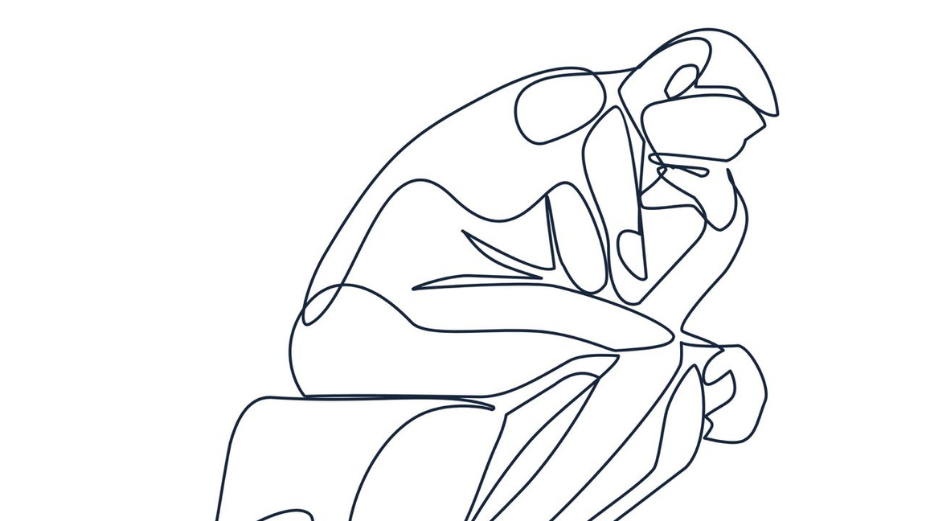
By Athif Ibrahim
We live in a world obsessed with applause. From the thunderous applause in a crowded auditorium to the dopamine rush of social media “likes,” validation seems to be the universal denomination against which we measure ourselves, our success, and our lives. We spend countless hours crafting facades, chasing achievements, and yearning for that external pat on the back. But amidst this relentless pursuit, a crucial question arises: Why do we prioritise the fleeting echo of applause over the quiet, unwavering approval of our own conscience?
This is an exploration of that very question from a psychological and philosophical point of view.
The Psychology Of Applause-Seeking
Psychologically, our desire for applause-seeking stems from our inherent social nature. We are social creatures—and being social creatures—we crave connection, belonging, and acceptance from those we love, admire, and consider as our in-groups.
Our early experiences and upbringing further shape this need. When our actions are met with praise, approval, or encouragement during childhood, it reinforces positive behaviours and fosters a sense of self-worth. At the same time, it triggers the release of dopamine—a neurotransmitter associated with pleasure and reward, creating a self-perpetuating reinforcement loop. This positive reinforcement loop, much like cumulative causation in economics and development geography, conditions us to seek further praise and approval from others, resulting in an unwholesome and insatiable dependence on external validation well into our adulthood.
Conversely, a lack of validation in our formative years can leave us feeling insecure, condemning us to seek external approval to fill an internal void constantly. Social media has become a breeding ground for this validation-seeking behaviour, especially of the latter type, from the latter camp. The carefully curated online persona is, more often than not, a manifestation of this phenomenon—the “When you are not fed love on a silver spoon, you learn to lick it off knives” phenomenon we were warned of by the Australian poet Lauren Eden, albeit in a different form. We meticulously edit photos, craft witty captions, and strategically post content—all in a desperate bid to garner the digital equivalent of applause in the form of likes, comments, saves, and shares.
However, these external sources of validation are, by their very nature, fleeting and fickle. They offer a temporary high but fail to provide the lasting sense of self-worth we truly crave. Worse still, such relentless pursuit of external validation can be detrimental to our mental well-being. Studies have repeatedly shown a correlation between excessive social media use and feelings of inadequacy, anxiety, and depression that we can no longer afford to ignore.
In the workplace, the need for approval—and fear of disapproval—can stifle creativity and lead to conformity. It is precisely what happens when we find ourselves constantly editing our behaviour to fit into pre-defined molds and to be at one with the crowd. And unless we become more aware of our inherent tendencies and work to mitigate them, there will be nothing left to celebrate or to marvel at our individuality. That alone should give us pause.
The Philosophy Of Self-Worth
From a philosophical perspective, the quest for external validation invariably raises questions about the source of meaning and purpose. And we can trace it to the philosophical musings of antiquity, where the self was examined under the introspective lens of existence: Are we living to please others, or are we living to fulfil a deeper sense of purpose inherent within ourselves?
Great philosophers like Socrates and Immanuel Kant emphasised the importance of introspection and self-knowledge, urging us to turn inward for true validation. Socrates famously implored us to “Know thyself,” believing that true happiness lies in understanding our own values and living authentically according to them. For them, the pursuit of external validation is a flawed approach to living a meaningful life. True validation, they argued, comes from aligning our actions with our own moral compass and living a life true to our authentic selves and core values.
Consider the historical figures who revolutionised the world. They were not driven by the applause of the masses, but by an internal conviction and a desire they could not easily shake to make a positive impact and to push humanity forward. Galileo Galilei challenged the prevailing geocentric model of the universe despite facing societal disapproval. Martin Luther King Jr. fought for racial equality in the face of immense opposition. Nelson Mandela tirelessly fought against the oppressive system of apartheid in South Africa, enduring years of imprisonment for his beliefs. These individuals found their validation not in the cheers of the crowd, but in the quiet approval of their own conscience.
It is as though they internalised the words of the Roman emperor Marcus Aurelius, “Waste no more time arguing about what a good man should be” and focused much, if not all, of their physical, emotional, and creative energy of their tumultuous lives on being one instead. Similarly, Stoic philosophers like Epictetus argued that the only things truly under our control are our thoughts and actions. External circumstances, they maintained—including the opinions of others—are beyond our control. Therefore, to find peace and fulfilment, we must focus on aligning our actions with our own moral compass and the rational acknowledgement of our inherent value, not the ever-shifting winds of external approval.
Yet, the journey to recognising our self-worth is fraught with challenges. It demands introspection, the courage to confront our imperfections, and the wisdom to appreciate our unique contributions to the world, however small and pedestrian they may seem. It requires the mental and emotional fortitude to eschew the fleeting, ephemeral rewards of external validation in favour of an enduring, long-lasting self-respect.
The tension between external validation and self-acceptance is a pervasive human struggle. Society’s accolades may be intoxicating, but they are ephemeral—and no match for true fulfilment that stems from an unwavering sense of self-worth, cultivated in the quiet chambers of our own minds. Thus, as we navigate the labyrinth of life, let us seek not the applause of the crowd, but the quiet approval of the self. Let us, as ancient Roman philosopher Seneca wrote to his friend Lucilius some 2,000 years ago, learn to “pull (ourselves) from empty pursuits” and channel it on going inward instead.
For in the end, it is our own measure of self-worth that will give credence and meaning to our lives and lead us to a place where we can stand tall, not before an audience, but before ourselves.
About the Writer: Athif writes about entrepreneurship, leadership, psychology, athletics, and life. ⟶ athifibrahim.com









